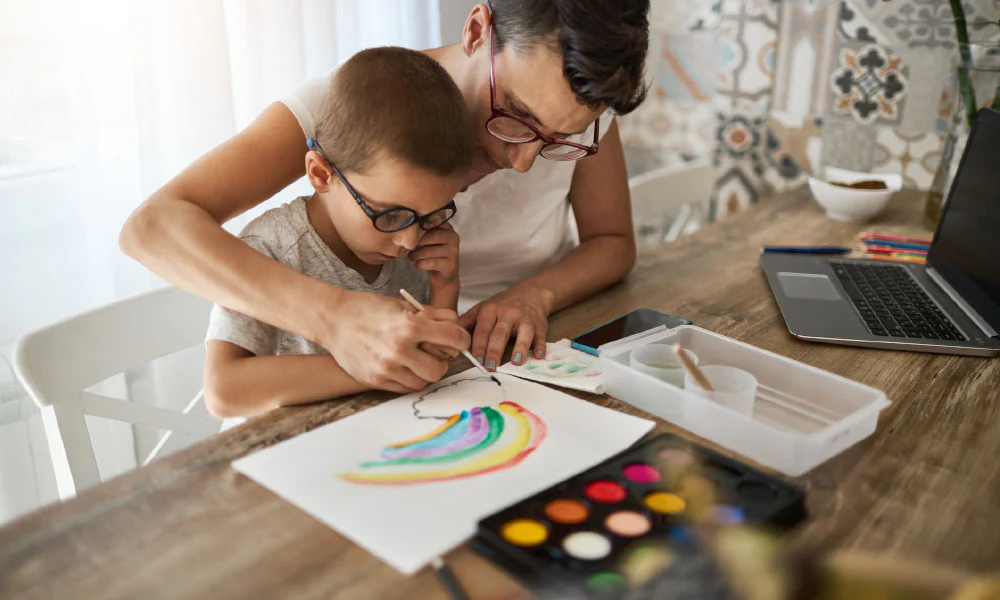Creativity is a fundamental skill that enriches both personal and academic development. Arts and music education provides students with a platform to explore their imaginations, express emotions, and develop critical thinking skills. Whether through painting, sculpting, singing, or playing an instrument, engaging in the arts helps individuals gain confidence, improve cognitive function, and foster emotional well-being.
Incorporating arts and music into education allows students to develop essential life skills such as problem-solving, collaboration, and self-discipline. With growing evidence supporting the importance of creative learning, integrating arts and music education into academic curricula is more vital than ever.
Why Arts and Music Education Matters
The arts go beyond mere entertainment—they enhance brain function, build cultural awareness, and provide an emotional outlet. Engaging in creative activities improves memory, motor skills, communication, and emotional intelligence. Music and visual arts also help students develop aesthetic appreciation, creativity, and discipline.
Key Benefits of Arts and Music Education
✔ Enhances Cognitive Development – Strengthens memory, concentration, and critical thinking skills.
✔ Encourages Self-Expression – Allows students to convey thoughts, emotions, and ideas through art and music.
✔ Improves Academic Performance – Studies show that students involved in the arts perform better in math, reading, and science.
✔ Develops Motor and Coordination Skills – Playing an instrument or engaging in fine arts refines hand-eye coordination and motor skills.
✔ Fosters Emotional Well-Being – Provides a therapeutic outlet for stress relief and self-reflection.
✔ Boosts Confidence and Communication – Performing or presenting artwork builds self-esteem and public speaking skills.
By integrating arts and music education into learning, students enhance both their intellectual and emotional capabilities.
The Role of Arts Education in Student Development
Art education stimulates imagination, enhances problem-solving skills, and promotes an appreciation for different cultures and perspectives. It includes disciplines such as:
1. Visual Arts: Encouraging Creativity and Expression
Visual arts encourage creativity and individuality, helping students develop an appreciation for aesthetics and design. Through activities such as painting, sculpting, and drawing, students learn to interpret and express complex ideas visually.
✔ Improves spatial awareness and fine motor skills
✔ Encourages creative problem-solving and critical thinking
✔ Provides an emotional and therapeutic outlet for self-expression
2. Performing Arts: Building Confidence and Collaboration
Theater, drama, and dance enhance storytelling abilities and interpersonal skills. Performing arts provide students with opportunities to engage with literature, history, and social issues while developing public speaking skills.
✔ Enhances communication and teamwork
✔ Develops self-discipline and time management
✔ Encourages empathy by exploring different perspectives
The Power of Music Education
Music education plays a key role in brain development, emotional intelligence, and social engagement. Learning an instrument, reading music, or participating in a choir enhances mathematical reasoning, memory retention, and auditory processing.
1. Instrumental Music: Strengthening Discipline and Focus
Playing an instrument requires patience, coordination, and practice, all of which contribute to cognitive and emotional growth.
✔ Develops fine motor skills and hand-eye coordination
✔ Teaches perseverance and resilience
✔ Strengthens pattern recognition and mathematical skills
2. Vocal Music: Enhancing Communication and Confidence
Singing promotes self-expression, language development, and confidence. Whether participating in a choir or solo performances, vocal music fosters teamwork and emotional expression.
✔ Improves breathing techniques and vocal control
✔ Enhances memory and linguistic abilities
✔ Boosts self-esteem through performance opportunities
Who Can Benefit from Arts and Music Education?
Creative education is beneficial for students of all ages and backgrounds. It is particularly valuable for:
✔ Young learners developing fine motor skills and cognitive abilities.
✔ Students seeking an emotional and creative outlet for self-expression.
✔ Individuals who enjoy storytelling, performance, or abstract thinking.
✔ Children and adults who want to improve confidence, discipline, and communication skills.
✔ Anyone looking to strengthen memory, pattern recognition, and artistic appreciation.
The arts provide a lifelong source of enrichment, inspiration, and cultural awareness.
How to Encourage Creativity Through Arts and Music at Home
Parents and educators can support artistic development by incorporating creative activities into daily life. Here are some practical ways to nurture a love for the arts:
✔ Encourage Drawing and Painting – Provide sketchbooks, paints, and other materials for free artistic expression.
✔ Introduce Music Early – Expose children to various genres and encourage them to explore instruments.
✔ Attend Live Performances and Art Exhibits – Experiencing art and music in a live setting fosters appreciation.
✔ Incorporate Arts into Other Subjects – Use creative projects to reinforce math, science, and language learning.
✔ Encourage Performance and Presentation – Have children act out stories, play instruments, or present artwork.
By making arts and music a part of everyday learning, students develop confidence, creativity, and a deeper appreciation for culture.
The Long-Term Impact of Arts and Music Education
Engaging in the arts not only benefits academic performance but also promotes lifelong learning, career readiness, and personal fulfillment. Many successful professionals attribute their problem-solving skills and creativity to an early foundation in the arts.
Careers Influenced by Arts and Music Education
✔ Musicians, Composers, and Conductors – Professional careers in music performance and composition.
✔ Graphic Designers and Illustrators – Creative roles in digital and visual media.
✔ Architects and Engineers – Utilize spatial awareness and design principles.
✔ Writers, Actors, and Directors – Careers in literature, film, and performing arts.
✔ Educators and Therapists – Use arts-based techniques for teaching and therapy.
A strong background in arts and music nurtures essential skills for a variety of professions, making it a valuable component of education.
Fostering Creativity for a Brighter Future
Arts and music education plays a vital role in student development, fostering creativity, confidence, and intellectual growth. Through hands-on artistic exploration and musical engagement, students gain essential life skills that extend beyond the classroom.
If you’re interested in providing a well-rounded, creative education for yourself or your child, explore opportunities to integrate arts and music into daily learning.
Start today—because creativity is the key to lifelong learning and success!





